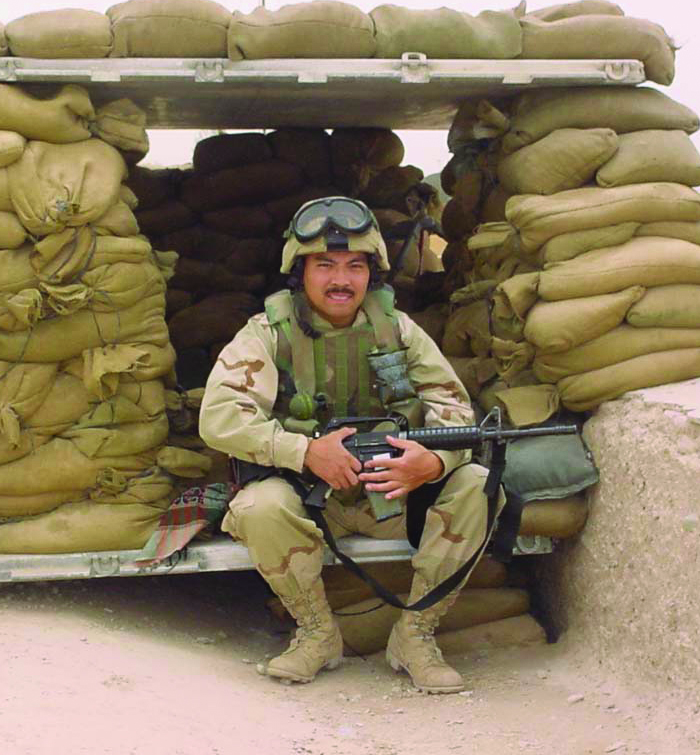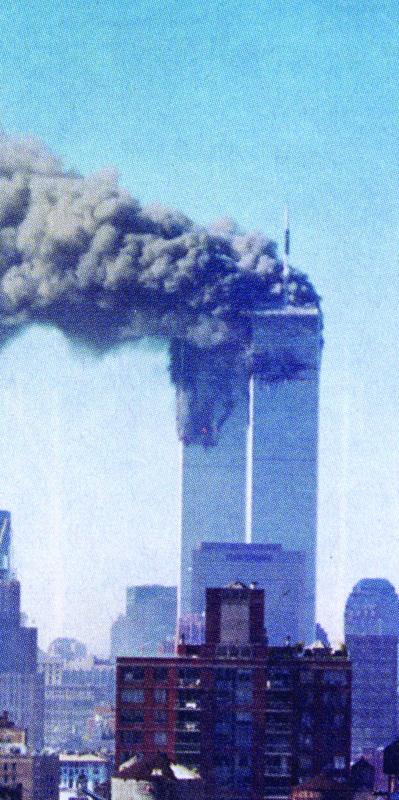A Walk In The Forsaken Land
By Peter H Guevara

The son of Mr. and Mrs. Peter Guevara, from Pampanga, is a soldier in the U.S. Army. At the height of America’s war against terrorism, Peter looks at the brighter side and here he shares with us how his experience as a soldier sent to Afghanistan changed him.
Army life is hectic at times and I was overdue a vacation. I arrived in Houston, Texas, two-and-a-half hours late to catch a connecting flight to Las Vegas. As I disembarked, it was hard to miss the masses of people huddled around the few television sets scattered around the airport.
September 11 tragedy
I watched the images of airplanes flying into the World Trade Center with horror and disbelief. It all seemed so unreal; it was like watching a movie. As I watched the events of that day unfold, I knew immediately that as a member of the Armed Forces, my life would be affected somehow.
Taking my part
When I returned to my military post in North Carolina, I found that I was right. Heightened security was everywhere around the post, and there was a sense in everyone that we would be involved in whatever action the United States would take. We started to prepare for the inevitable as soon as I returned. Shortly after Christmas, my unit was finally told it would be going to Afghanistan to join the war effort. In mid-March 2002, the first elements of my military unit departed for Afghanistan. One by one I watched them leave, until my turn came in late April.
Forsaken land
 I left for Afghanistan with some feelings of apprehension. Little did I know what a lesson in cultural diversity I was about to receive. My first impression of Afghanistan was, “Why would anyone live here?” The land is arid and dry. The vegetation is sparse. Natural water is hard to find. Life is nomadic at best. Afghanistan suffers great extremes of temperature. The winter is bitterly cold and the heat in the summer is oppressive. The dust storms are also very hard to live in. Dust gets into everything, and at times it makes breathing difficult. The region is also very mountainous, so it is not easily traveled. There is little or no infrastructure. For weeks I wondered what the former Soviet Union wanted Afghanistan for when they invaded it some years ago. I found very few endearing qualities in this forsaken land until I interacted with some of the Afghan people.
I left for Afghanistan with some feelings of apprehension. Little did I know what a lesson in cultural diversity I was about to receive. My first impression of Afghanistan was, “Why would anyone live here?” The land is arid and dry. The vegetation is sparse. Natural water is hard to find. Life is nomadic at best. Afghanistan suffers great extremes of temperature. The winter is bitterly cold and the heat in the summer is oppressive. The dust storms are also very hard to live in. Dust gets into everything, and at times it makes breathing difficult. The region is also very mountainous, so it is not easily traveled. There is little or no infrastructure. For weeks I wondered what the former Soviet Union wanted Afghanistan for when they invaded it some years ago. I found very few endearing qualities in this forsaken land until I interacted with some of the Afghan people.
Their simple joy
Most of the people I saw were in the marketplace in the several towns I visited. It is pretty much where most activity in the villages occurs. People gather at the small stands scattered around. One thing that sticks in my mind is the children of Afghanistan. No matter where I went, the children were always smiling. Despite the harsh reality of their lives, the children of Afghanistan find joy in simple things.
They don’t have expensive toys to play with, and most of them have countless chores to do daily. Still, every child I encountered had that genuine sense of innocence that you find in children everywhere.
Living life to the fullest
Life for the people of Afghanistan is extremely simple. It’s a meager existence at best. Western conveniences are few and far between, yet the people of this poor nation live life to its fullest. It’s hard for them to miss things they don’t know exist. There are many in this country who have never seen a television set or a flush toilet. On one of my trips to a remote village, I realized that many of those I was interacting with had probably never been farther away from home than maybe four or five miles. They had never been any farther than they could walk.
Perils in Afghanistan
Afghanistan is still an extremely dangerous place to be. The country is riddled with land mines. Not a day went by without hearing at least one mine explosion. For the Coalition Forces in Afghanistan it is extremely difficult, if not impossible, to determine who is friend or foe. Those who are friends today might very well be foes tomorrow.
Assumed freedom
The war against terrorism goes on. I believe that the presence of the Coalition Forces in Afghanistan has made a difference, however. The women of Afghanistan are slowly starting to benefit from the Western presence. As they take a greater role in their society, life can only change for the better. Some women have been brave enough to stop wearing their burkas. The burka is a complete veil which women in some countries wear over their face. Many are going to school and many women have opened businesses in Kabul. Beauty shops were not a part of life under the Taliban rule, but now they are starting to appear. I believe that the future of Afghanistan lies in its women and children.
I left Afghanistan with mixed emotions. I was happy to be going home, yet sad at the plight of the people in Afghanistan. I will always have a greater appreciation of all that I have. I thought I had seen poverty at its worst when I was in Bosnia-Herzogovina for over eight months in 1996. I saw simple living when I went to Nigeria later. Neither place was comparable to Afghanistan.
